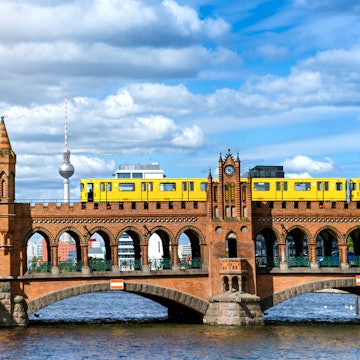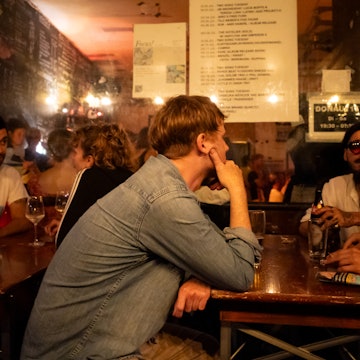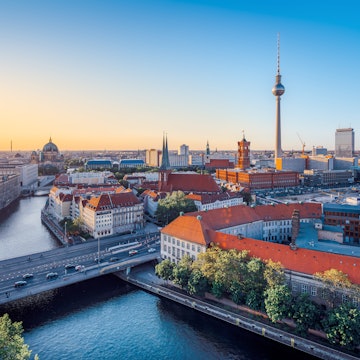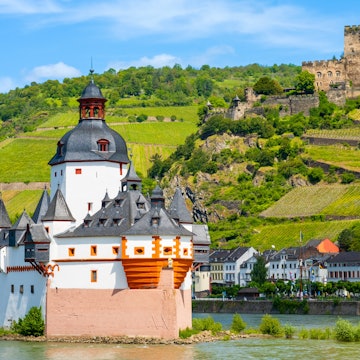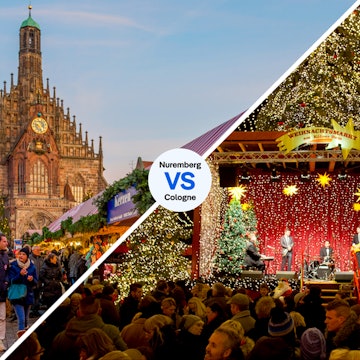
Why you should consider taking the bus to your European city break
Jan 26, 2020 • 6 min read
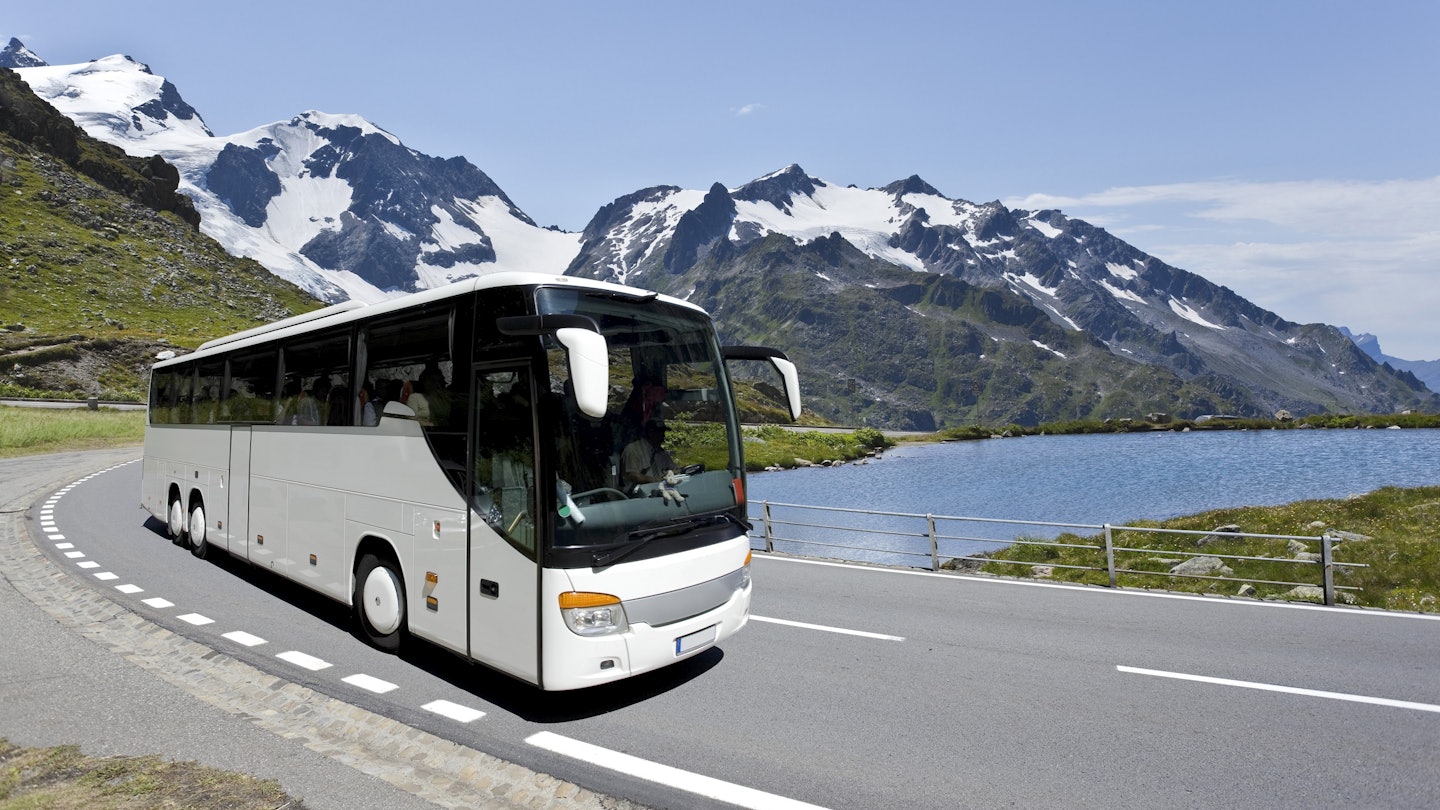
With the travel industry increasingly under fire regarding carbon emissions, what is to become of the one form of travel that hinges most on cheap, high-emission flights – the city break? Armed with podcasts, snacks and hopeless optimism, Lonely Planet writer Emily Frost hopped aboard a bus from London Victoria to see if coach travel across Europe is the more sustainable way to take your short European break.

As we pull into the bus station of Cologne airport, I can feel the panic rising. The swirling, bilious sensation in my throat is doubtless about to reach an unfortunate climax. Frantically, I conduct a scan of the surrounding area for something that might help me; a discarded plastic bag, an escape hatch to another dimension… Just as I lose all hope, the engine cuts out. We’ve stopped.
Almost shoving my travel companion to the floor in the process, I sprint along the aisle to (relatively) fresh air freedom. 18 hours spent solidly on a bus was too much for even my usually iron-clad stomach. This city break in Krakow had better be worth it.
If you’re currently thinking that the above sounds a rather large price to pay for trying to make my city break to Krakow, Poland more sustainable, I don’t blame you. But what with the sky-high carbon emissions that flying instead would involve, and the equally sky-high prices of an equivalent rail journey, if I was to succeed in my responsible travel efforts, taking the bus seemed the only realistic solution. Upon checking the details of my hastily-booked ticket before I set off, I was mildly disheartened to note that the full journey from London to Krakow would last 32 mind-melting hours, including a seven-hour stopover in Prague. The return journey was mercifully shorter, but would still include an 18-hour stop in Berlin. The equivalent return flight from London to Krakow is just two-and-a-half hours each way, direct.
Was making the more sustainable transport decision for my city break worth the endless miles of monotonous motorway, cramped seating conditions and (regrettable) vomiting incidents? Could this be the future of city breaking? Here are some valuable lessons I learned along the way.

Lessons I learned when taking my city break by bus:
1. Think carefully about the length of the journey
The gung-ho attitude I’d employed when opting to bus from London to Krakow, I see now, was a little naive. Considering the spirit of the city break is one of fast-paced thrills and whirlwind experiences, a long, slow, fragmented journey can kill the vibe somewhat. For this reason, I’d advise perhaps choosing a city-break location that requires a shorter journey.
2. Expect delays, and be flexible
Buses are at the mercy of traffic, and traffic can cause delays. Those delays can result in the meticulously-planned, minute-by-minute sightseeing itinerary you created for the seven-hour stop in Prague, to be rendered entirely redundant when you roll into the city five hours later than planned.
3. Bus snacks are essential
Our bus snacks were enjoyed with fervour almost as soon as we left London, but came into their own following an unfortunate hold-up at the Eurotunnel, causing us to be set back many hours in our journey. The comforting pleasure of a rice cake eaten at 2am, while waiting on a connecting service in Nuremberg bus station, is a joy I’ll treasure forever.

Why I would do it again:
1. The opportunities for further adventure
Due to the length of our journey, we were required to make stops at certain cites’ stations when changing from one bus to another. I had never visited Prague or Berlin, and the proximity of the bus stations to the historic city centres allowed us to fit in some considerable sightseeing.
We unfortunately experienced significant traffic delays en route to Krakow, which meant we ended up with only two hours to wait in Prague instead of the forecast seven. However, fuelled by Czech Trdelník cake and adopting a slightly hurried pace, we still managed to get an eyeful of Wenceslas Square, the Astronomical Clock and Charles Bridge. On our return journey, 18 hours in Berlin allowed us time to visit the Eastside Gallery, Checkpoint Charlie, the Holocaust Memorial and the Reichstag before our late-night bus home.
2. The sense of connection to a destination
There’s something a bit impersonal about flying into a country for a city break. Airports are often located miles out of the centre in anonymous, characterless land, from which you’re immediately shuttled. Bussing into a city showcases how it fits into the wider country, and indeed, what that wider country looks like. Often the view was stretches of grey motorway. But gazing beyond the road across pastoral plateaus, until the scenery slowly merged into cities’ suburban surrounds gave me a broader understanding of their context, both geographical and cultural.
3. The ease of transit
Since bus stations tend to be pretty close to the hub of a city, you can immediately start exploring. Buses also require far less preamble – there’s no need to queue up for passport control, to check or collect bags, or to wait before being allowed to disembark. Due to delays, we had to change buses more than we were supposed to, but when it came to navigating these route changes, we didn’t have to do a thing. We were automatically messaged by the bus company with the new details of our onward journey, free of charge, whenever a significant delay caused us to miss a connection. The same service could almost definitely not be expected of an airline.
4. The environmental benefits
The consideration that led me to such an undertaking in the first place – bussing is a more responsible way to travel. Although taking the train would undeniably have had an even lower environmental impact, the expense of doing so rendered it unfeasible for me. The cost of taking the bus was on par with that of flying – both around £65 (€76) for a return. However, for my entire bus journey from London to Krakow and back, the Carbon Footprint Calculator estimated my emissions at 0.32 tonnes of CO2e, whereas the equivalent return flight totalled 0.45.
Stepping off the bus in Krakow station at 1am, nursing exhaustion deep within the very fibres of my soul, I felt no regret. Or, thankfully, nausea. A Ryanair flight would almost certainly have deposited me into the city in far less time, with far less hassle… But also, I suspected, with far fewer stories to tell.
You might also like:
Sustainability: what Lundy Island can teach us about saving the planet
All aboard the Slumber Express: family travel by night train
Where (not) to go in 2100: sites under threat from climate change







